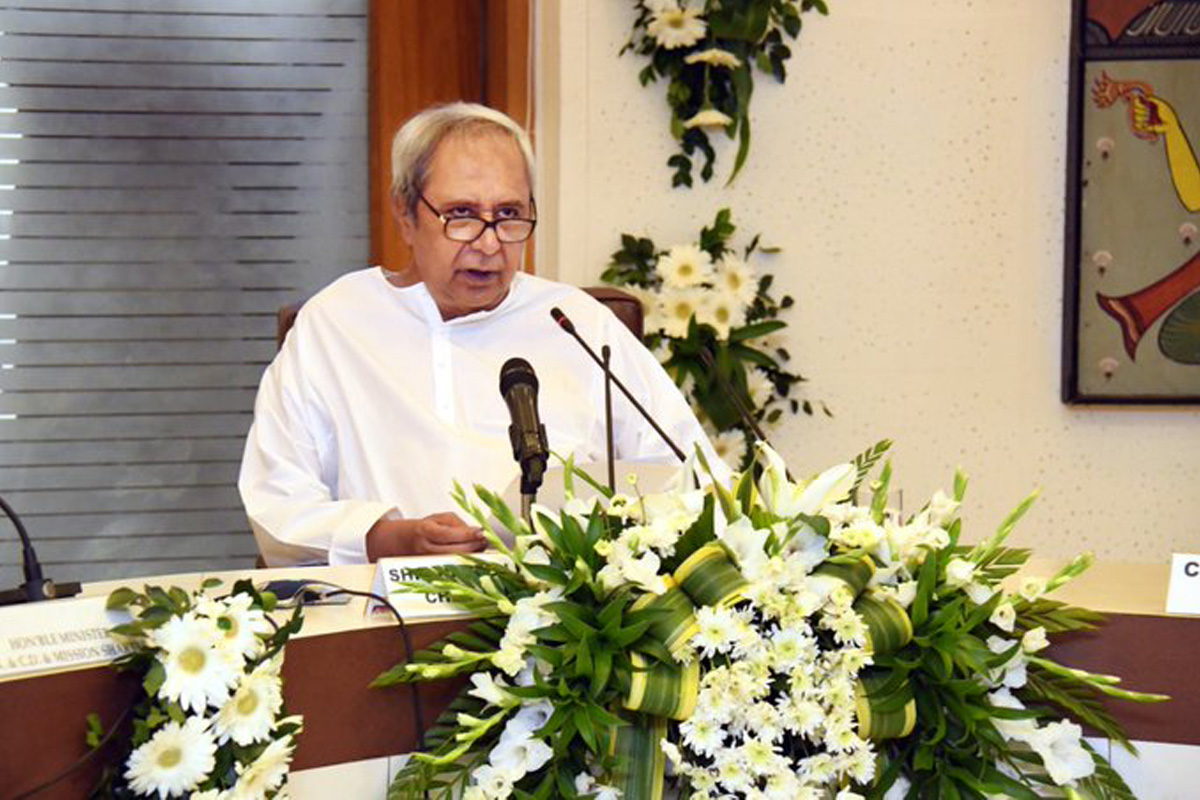AAP completely lost touch with people, claims Sachdeva
He alleged that not just Delhi, the people of Punjab are distressed by the development stagnation and rapid corruption under the AAP’s rule.
Mr Patnaik was remarkably explicit when he told the meeting that the fight against poverty, disease, injustice, natural calamities or regional disparities “will be worthless if we do not ensure transparency and eradicate corruption ~ the enemy of development”.

(Image: Twitter/@Naveen_Odisha)
Far from engaging in a bout of competitive electoral rhetoric in the manner of Amit Shah and Mamata Banerjee, the Odisha Chief Minister has dwelt on brasstacks if Monday’s presentation by Naveen Patnaik at the ruling BJD’s state council meeting is any indication.
Well and truly has he put in place a new benchmark in the state’s drive against corruption. Towards that end, annual property statements are to be filed by all public servants ~ from the sarpanch to MLAs, MPs and all government staff up to the level of Chief Secretary.
These are to be made public and also advanced to the Lokayukta. So sweeping a measure has seldom been announced by any state. It is most particularly significant in the case of Odisha, now in the vanguard as an investment destination. Mr Patnaik was remarkably explicit when he told the meeting that the fight against poverty, disease, injustice, natural calamities or regional disparities “will be worthless if we do not ensure transparency and eradicate corruption ~ the enemy of development”.
Advertisement
He has highlighted the contrived co-relation between development and corruption, though the second runs counter to the first. The relentless fight against corruption, he claimed, has brought Odisha a measure of fame all over the country.
The Chief Minister has now tightened the screws, the exemplars being the establishment of a Bench for the trial of corruption cases or the confiscation of assets of those involved in corruption. As many as 91 allegedly corrupt officials have been dismissed over the past year, a drastic action that many states would be proud of but few able to boast.
“We have stopped their pension and will further intensify the struggle against corruption,” Mr Patnaik has warned his party leadership. The subtext is fairly obvious. A section of worthies of Odisha’s ruling party are wallowing in the mire of corruption.
Another critical announcement was the decision to reserve seats in medical and engineering colleges for students of government schools. This initiative in terms of social justice will be buttressed with surveys of the backward segments.
Also to be welcomed is the impetus to women’s empowerment, specifically the demand for reservation of seats in the state Assembly and Parliament. The proposal will be furnished to the respective ministries for a proper follow-through. Mr Patnaik has in effect underlined the role of regional parties in the overall construct of development untainted by endemic corruption.
He has drawn a very pertinent distinction between regional and national parties which tend to “mainstream policies and languages”.
The development paradigm has been covered fair and square with the emphasis on corruption, the emphasis on engineering and medical education and reservation in legislatures for women.
Advertisement